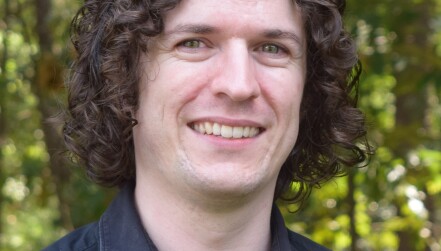
AIP’s research team works as an interdisciplinary intellectual community established by the physical sciences communities to study the historical and contemporary social, cultural, economic, and policy aspects of the physical sciences enterprise with the goal of improving how the physical sciences benefit humanity.
We work to collect, interpret, and preserve data and records that are useful for understanding how people in the physical sciences community (scientists, undergraduate and graduate students, faculty, policy makers, and industry leaders) participate in organizations (scientific societies, labs, academic departments, and federal agencies) to enable scientific progress for the benefit of humanity. Through this work, we hold up a mirror to the physical science communities and invite and facilitate dialog about how the physical sciences can best develop and evolve in positive ways.
As part of AIP’s overall research strategy, AIP’s research team focuses its efforts in four primary thematic areas detailed below. Along with work aligned to these four thematic areas of focus, we engage with stakeholders in the scientific community to establish an annual research agenda
1. Supporting a welcoming culture and removing barriers to opportunity for all in the physical sciences
A core area of focus for AIP’s research team is supporting AIP’s broader goal of broadening and removing barriers to opportunity and career advancement for all in the physical sciences enterprise. We work to highlight contributions of scientists who have broken through the barriers to participation that our research shows persist in science. We seek to learn from successes and failures in making science more welcoming in the last century. We engage in in-depth research to characterize and understand the impact of barriers to participation in the physical sciences. This work helps to further ensure that everyone can find community and connection in the physical sciences.
2. Advancing thought leadership in public policy in the physical sciences
Public policy and public funding sets much of the overall context in which physical scientists can engage in efforts for positive change in society. Through engagement with public policy experts, historians, and social scientists and dialog with Member Society stakeholders, AIP’s research team works to explore the history and future of public policy and public investment to best advance the scientific enterprise into the next century.
3. Ensuring Records of 20th & 21st Century Science are Preserved & Used
Computing technologies are transforming nearly all aspects of the physical sciences enterprise. As a result, those computing technologies are transforming the historical record of science. This presents a major challenge for the potential for current and future scientists and scholars to engage with a robust and broadly representative record of 20th and 21st century science, inclusive of records, publications, data, and a range of unpublished primary sources. To this end, AIP’s research team leads collaborative efforts with Member Societies, libraries and archives, and information science researchers to ensure enduring access to increasingly born digital records of the scientific enterprise. This includes our own work to collect and preserve materials, support for the development of approaches and methods for collecting, preserving, and interpreting new forms of digital resources, and working to build capacity across the country for acquiring, preserving, and interpreting relevant collections.
4. Promoting vibrant career trajectories for physical science professionals
Advancements in physical sciences are only possible because of the work of a wide range of physical science professionals. Major social, cultural, and political issues facing contemporary society, such as: employment precarity, widespread barriers to equal opportunity for all, burnout, income inequality, and global climate change, present significant challenges for current and future physical science professionals to have vibrant and fulfilling careers. Through oral histories and our collections, we draw attention to and celebrate the relationships and mentorships that make science possible. Through ongoing survey efforts, we provide critical data for understanding career trends and issues. We collaborate with students, Member Society representatives, and the broader field to better understand and support vibrant, sustainable, and fulfilling physical science careers that are filled with opportunity.
